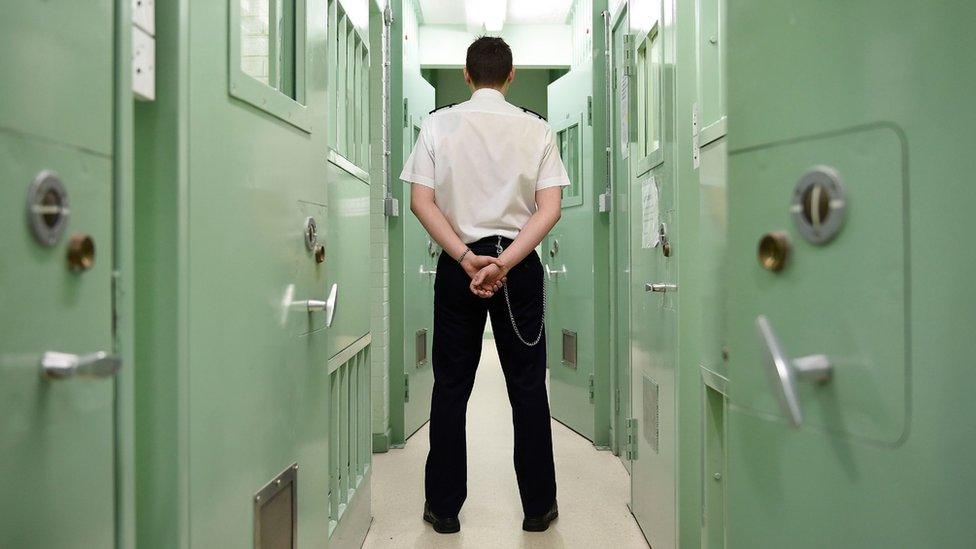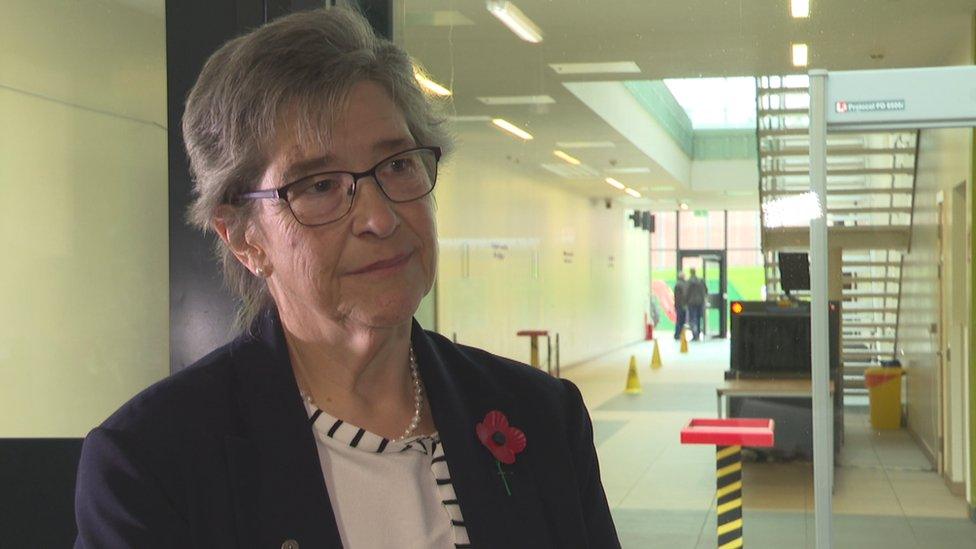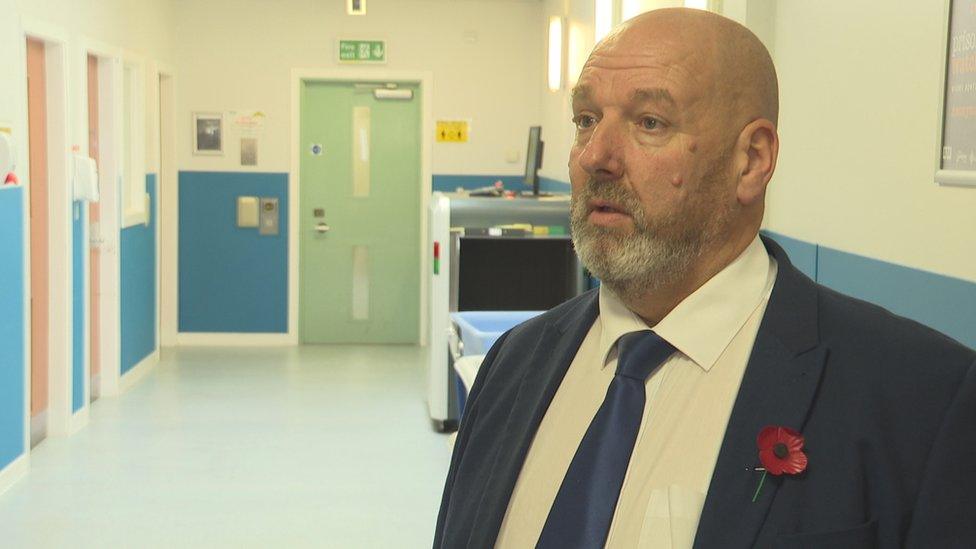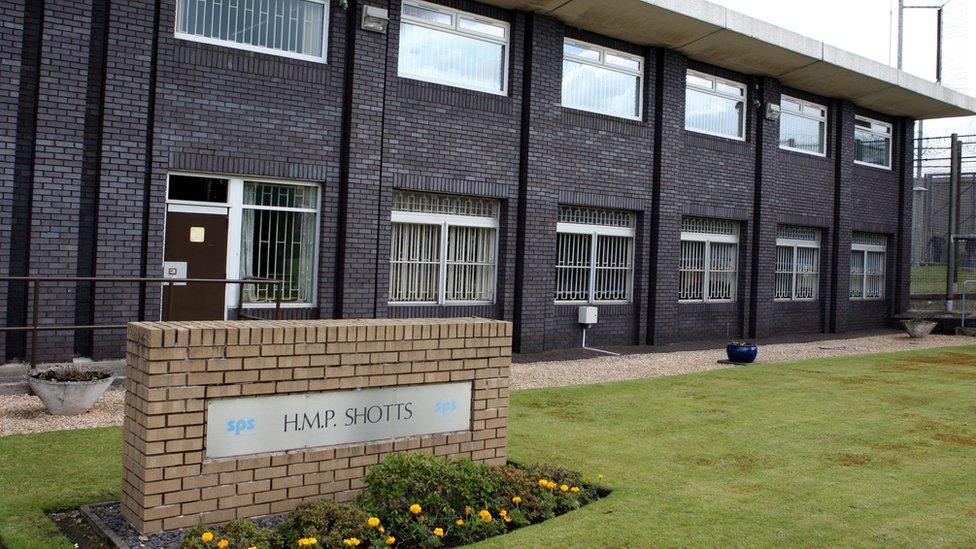Budget fears voiced as Scottish prison energy bills soar
- Published

The Scottish Prison Service's gas and electricity bills have rocketed by 47% as it faces the threat of budget cuts.
The service says the cost of providing food for prisoners has risen by almost 17% and could increase by up to 30%.
However, the Scottish government is proposing that the budget for the criminal justice system will remain flat over the next four years.
The prison service's chief executive Teresa Medhurst said it was already under pressure due to inflation.
She warned the service had "no or very limited scope" for making savings.
Ms Medhurst has told the Scottish Parliament's criminal justice committee, external that a budget freeze could threaten its operational stability and leave it open to challenges under human rights legislation.
She also warned that essential rehabilitative regimes could be lost and health and welfare support put at risk.
Ms Medhurst said the 47% increase in gas and electricity prices - which are expected to reach £15m in the current financial year - had "created a significant pressure" on the SPS budget.
She added that the cost of food for prisoners was already a "key cost pressure", and that over the next six months the annual inflation could reach 30%. Food costs are expected to be £7.4m in 2022/23.
In a resource spending review published in May, the Scottish government proposed a flat cash settlement for the criminal justice system until March 2027.
Ms Medhurt's concerns over this proposal have been echoed by His Majesty's Chief Inspector of Prisons for Scotland, Wendy Sinclair-Gieben.

The chief inspector of prisons said the settlement could have a massive impact
Speaking during a visit to HMP Shotts in Lanarkshire, she said: "I'm very concerned about it.
"This is a service that provides containment for the most dangerous and the most vulnerable in society for Scotland.
"To have a flat cash settlement will have a massive impact on how they cope with that."
The Scottish Prison Service operates 13 prisons and two community custody units for women, with 4,500 staff and about 7,500 inmates.
HMP Shotts is the national facility for long-term prisoners. Of the 540 men behind its bars, 240 are serving life sentences.
Its governor, William Stuart, said the jail's food and utility bills had increased significantly. The service is also facing demands for increased wages.

HMP Shotts governor William Stuart said utility bills had increased
He said: "It is going to make it much more difficult in the future to operate the way we do right now, so we may have to make decisions about doing things differently from what we're doing today."
He said this could result in fewer opportunities for prisoners.
"We may not be able to provide the full range of activities and regime we have just now," he said.
"We may have to look at our staffing profile, which in my opinion would make the prison more unsafe. I would be worried about the safety of our staff and the safety of those we look after."
The criminal justice committee at the Scottish Parliament is due to hear evidence on Wednesday from officials from the prison service, courts service and the Crown Office and Procurator Fiscal Service.
They have all have expressed concern about the flat cash settlement proposed in the spending review.
The courts service and Crown Office say budget cuts will hamper their efforts to address the backlog of cases caused by the pandemic and could halt the development of new initiatives to deal with sexual offences.

In response, the Scottish government said that the review published in May lays out "high level resource spending plans" and is not a budget.
It called on the UK government to use its financial and economic powers to provide support for public services "in these difficult times".
The UK government has said it provided Holyrood with a record £41bn per year for the next three years, "the highest spending review settlement since devolution".
A spokesman said: "The Scottish government is receiving around £126 per person for every £100 per person of equivalent UK government spending in England over the next three years."
The comments came as the chief inspector of prisons published a report on HMP Shotts.
It said the facility was safe and well run but faced challenges because of a shortage of NHS staff to provide medical care.
Ms Sinclair-Gieben said the prison's "confidence" had been affected by a period of significant incidents earlier this year, but the national introduction of photocopying of prisoner mail had led to "a welcome reduction in drug related incidents".